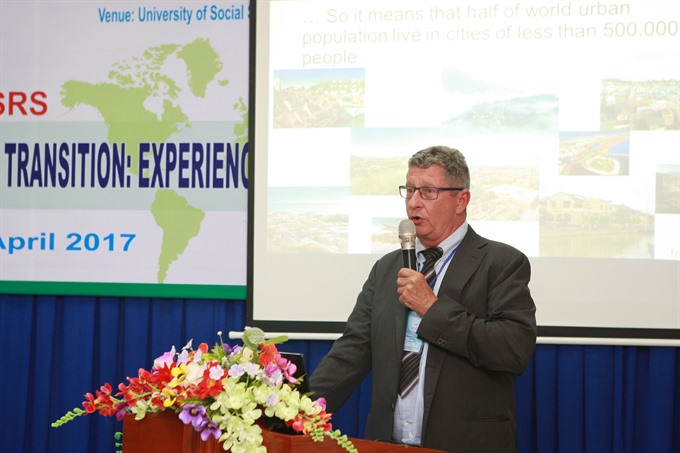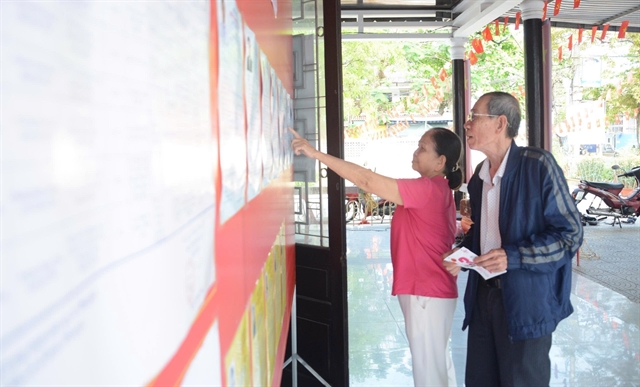 Society
Society

" />Rural decline has emerged as a worldwide phenomenon as urbanisation and globalisation have dominated the world’s development during the past decades, according to experts.
 |
| Bolay Jean-Claude, director of the Centre for Co-operation and Development at the Swiss Federal Institute of Technology, spoke about sustainable rural development at a three-day colloquium held in HCM City. — VNS Photo Quang Châu |
HCM CITY — Rural decline has emerged as a worldwide phenomenon as urbanisation and globalisation have dominated the world’s development during the past decades, according to experts.
Such decline not only impairs villages’ development, but also restricts sustainable urban development, according to Associate Professor Li Yuheng of the Institute of Geographic Sciences and Natural Resources Research at the Chinese Academy of Sciences and Professor Liu Yansui of China’s College of Resources Science and Technology.
The two professors spoke at a three-day colloquium on rural spaces that ended on Tuesday in HCM City.
Rural economics and spaces have experienced various transformations due to the dynamics of development, with modernisation of agriculture, urbanisation and globalisation contributing significantly to the changes.
Globalisation has brought both opportunities and challenges to various aspects of the rural system. It has improved agricultural productivity but at the same time placed farmers in financial difficulties. In addition, it can have a negative impact on cultural values of residents in rural areas.
Professor Chung Hoàng Chương, senior researcher at the Centre for International Studies at the University of Social Sciences and Humanities in HCM City, told Việt Nam News that it was important to help farmers to continue to live in their localities.
Farmers need to learn new skills through training and should be given conditions to increase income, Chương said.
Reduction of water levels in the Mekong Delta region, for instance, has affected incomes of farmers who grow paddy rice or breed fish in cages, he said.
They need training so they can shift to a new job and remain in their hometowns, he said.
Long Hualou at the Institute of Geographic Sciences and Natural Resources Research of the Chinese Academy of Sciences said that land consolidation could help restructure rural production, living and ecological space.
The model and approach for rural spatial restructuring includes farmland concentration under large-scale management and administrative reorganisation, he said.
Restructuring can be enhanced by innovations provided by land consolidation engineering technology and new policies, he added.
The colloquium also discussed the impact of climate change on rural economic and natural systems, land-use change and its impact on rural areas, and tourism, which is seen as an opportunity for many rural areas. — VNS




